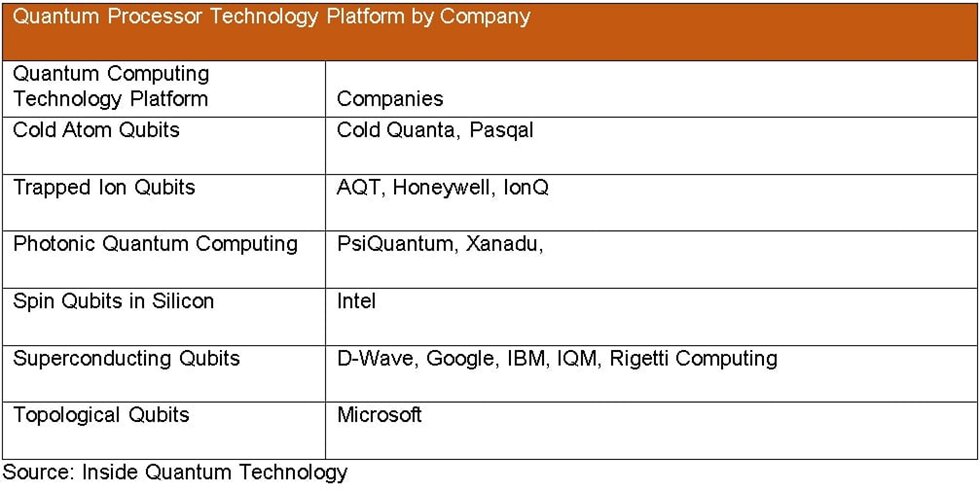

 Favorite (9)
Favorite (9)
The future will show how fast we will see the impacts. Some people are already asking for better controlling the hype caused by the potential of the new technology which is mainly found in the fields of sensing, cryptography/secure communications and computing.
The impact on the development of new products will be multifold. To provide a few application examples:
One of four people suffer from mental health in lifetime: Alzheimer, epilepsy, Parkinson, schizophrenia, to name a few. Understanding the human brain is therefore key to find new therapies and to develop targeted drugs. In this context, the ability to measure the magnetic fields generated by the current flow in the human brain is of vital importance. Magnetoencephalography devices based on quantum sensors operating at room temperature are already produced and can measure the magnetic field generated by the human brain (approx. 3 femto-tesla), truly a transformative technology.
More information can be found at: www.cercamagnetics.com/
Quantum Cryptography offers the potential to perform encryption at the physical network layer and will ensure unbreakable security solutions. It will also mean the end of today's security schemes widely used amongst others in banking and commerce. Cryptocurrencies will no longer be secure, as quantum computers will be able to break security codes in a fraction of seconds rather than in years needed with today´s conventional high-performance computing.
The quantum threat to cybersecurity needs to be mitigated by deploying new cryptographic tools. The transition to quantum-safe cryptography is a challenge itself, as it requires the development and deployment of hardware and software solutions, the establishment of standards, the migration of legacy systems, and more. There is a lot of homework to be done by industry, service providers and governments.
Quantum computing is currently making significant progress. They are 100 million times faster than any classical computer and need 100 and more times less power.
We can expect that machine learning will exponentially accelerate even reducing the time to solve a problem from hundreds of thousands of years to seconds.
When IBM’s computer Deep Blue defeated chess champion, Garry Kasparov in 1997, it was able to gain a competitive advantage because it examined 200 million possible moves each second. A quantum machine would be able to calculate 1 trillion moves per second!
Different technology platforms for Quantum Processors are under development.

In addition to the technologies mentioned above PC type, desktop quantum computers working at room-temperature are currently designed. The technology employed is “NV-center based Qubits in diamond”.
Like Russian President Vladimir Putin said, in the AI arms race, the country with the best tech will rule the world. Quantum computers are the major drivers in this race.
Quantum hardware innovations can be exploited by quantum algorithms and application-driven algorithms can shape hardware architectures and configurations. Open Innovation efforts between different industries and research institutions are actively being pursued. And Interestingly enough, Quantum technologies can be utilized in making use of existing material and production capabilities, which will also shorten time to market.
First industry consortia are formed to work on the supply chain for components and materials needed for quantum production of quantum products. In this respect too one should be careful in underestimating the speed of development - “hype control”- a term used by some European politicians and experts - might be misunderstood.
Now, who/which countries are in the lead in this race? A race, which will have a dramatic impact on future countries and societies.
Over the last years, there has been an exponential increase in investment in quantum technologies worldwide. The current global effort in public funding is estimated to exceed 22 bn $. Private investments in this sector have been more than 1 bn $ in 2020 alone. Some very recent announcements in the US, China and EU and some European countries indicate a further boost in investment, both in public and in private.
The output or result of all investments can best be measured by the number of quantum patents granted. End of 2020 close to 10.000 quantum-related patents had been awarded globally. China has become the world leader with 52 % of all patents, ahead of the US (24%) and Japan (8 %). Europe at large (including Russia) accounts for 13 % of global patents.
Regarding fields of technology: China has become a leader in secure quantum communications. For its part, the USA remains the leader in technologies related to the construction of quantum computers which includes computer technology, semiconductors and nanotechnology.
Among the top 20 companies in patent-portfolio size, we find 11 Chinese organizations, mostly specialized in communications. In the ranking, 6 American multinationals are mentioned, among which are IBM, Intel, Google and Microsoft. No European company is part of the Top 20.
More information can be found at:
www.lelabquantique.com/wp-content/uploads/2020/09/QuantumTechnologiesPatPubInvLandscapes.pdf
So far merrily one percent of all companies and their leadership in the US and Europe have actively engaged in understanding the potential impact of these developments on their businesses and have taken first initiatives to capture the potential benefits of quantum technologies. Even more of concern: 80 percent have not even thought of the threat and opportunities caused by this new technology at all. It is time to act.